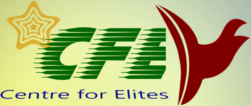Description
This is the Computer Studies Teachers Education Syllabus, 2015 version produced by the Zambian Curriculum Development Centre (CDC). This syllabus has been uploaded to help Prospective Teachers and college lecturers to find a better guide to use the courses and the Pastpapers already uploaded on our websites.
This syllabus is availed to you with the sole intention to support the active students who use ICT and online facilities for their prep. Our contribution is to bring the necessary material for these users, especially those who follow the Teachers’ College Zambian Curriculum, as closest as possible.
Don’t hesitate to give us your views about this post in the comments section, which will help us to improve our future articles. This will equally give us an opportunity to find a way to help you or our students much better.
Additional support to the Computer Studies Teachers Education Syllabus
We keep on improving our services. That’s why we have even created different spaces to exchange ideas and help one another improve or reach their academic or career goals.
To that effect, please take advantage of our forum to create the study groups related to the courses (subjects) you are taking. Also, visit other academic material stores for rich information in the addresses given below.
Click Here to open the learning materials page
Click Here to access the Pastpapers Click Here to go to the Forum
Further Information about AComputer Studies Teachers Education Syllabus, 2015
The Computer Studies syllabus introduces learners to key computer concepts and skills. This will equip them with relevant knowledge to facilitate the teaching and the learning by pupils of Computer Studies at Junior Secondary level in Zambia. This Computer Studies syllabus is a response to the need to impart practical computer knowledge to children at an early age as outlined in the new curricula from early child education to grade twelve. The syllabus emphasizes the context in which the teaching and learning of Computer concepts will take place. It provides the student teacher with the appropriate knowledge, values, teaching skills, pedagogy and competencies needed to function as an effective junior secondary school teacher.
It is important to underscore the fact that quality education promotes the development of knowledge, reasoning ability, concepts, skills, values and appropriate behavioral patterns. Therefore, this syllabus has combined subject content, andragogy, and pedagogy for effective delivery. A teacher can be inadequate if they cannot use effective methods or pedagogy in delivering knowledge to the learners. This means that content and methodology must be relevant to the teaching-learning process and consequently these have been considered in this syllabus.
Assessment
Computer studies is a practical subject and as such this syllabus places a lot of emphasis on the use of standard, commercial and major packages. It will therefore be the schools responsibilities to ensure that equipment and facilities that expose their learners to meet the minimum requirements for assessment purposes are acquired.
There will be two papers, one practical and one theory paper. This will be in addition to continuous assessment that will be set as school based assessment. Thus the examination of Computer studies will be divided into two sections. Computer studies is a practical subject and as such 50% of the specific outcomes belong to applications.
Continuous assessment by the College
- Tests/Assignments/Seminars/Groupwork will amount to 40 % of the final mark
External assessment by the examination board
- Theory (50 %)
- Practical (50 %)
The external assessment will amount to 60 % of the final mark
Aims
The syllabus aims to train Junior Secondary School teachers who will be knowledgeable in Computer Studies and able to impart practical skills in learners. Therefore, developing a comprehensive understanding of the learner-centred approach is an essential and core purpose of the syllabus. This approach advocates activity-based learning, critical thinking and enquiry, and objective continuous assessment.
General Outcomes
- Develop an understanding of computer hardware and software, Computer Security, networking and web design, basic programming and legal and professional issues
- Operate the computer efficiently and effectively
Discover more from Centre for Elites
Subscribe to get the latest posts sent to your email.
